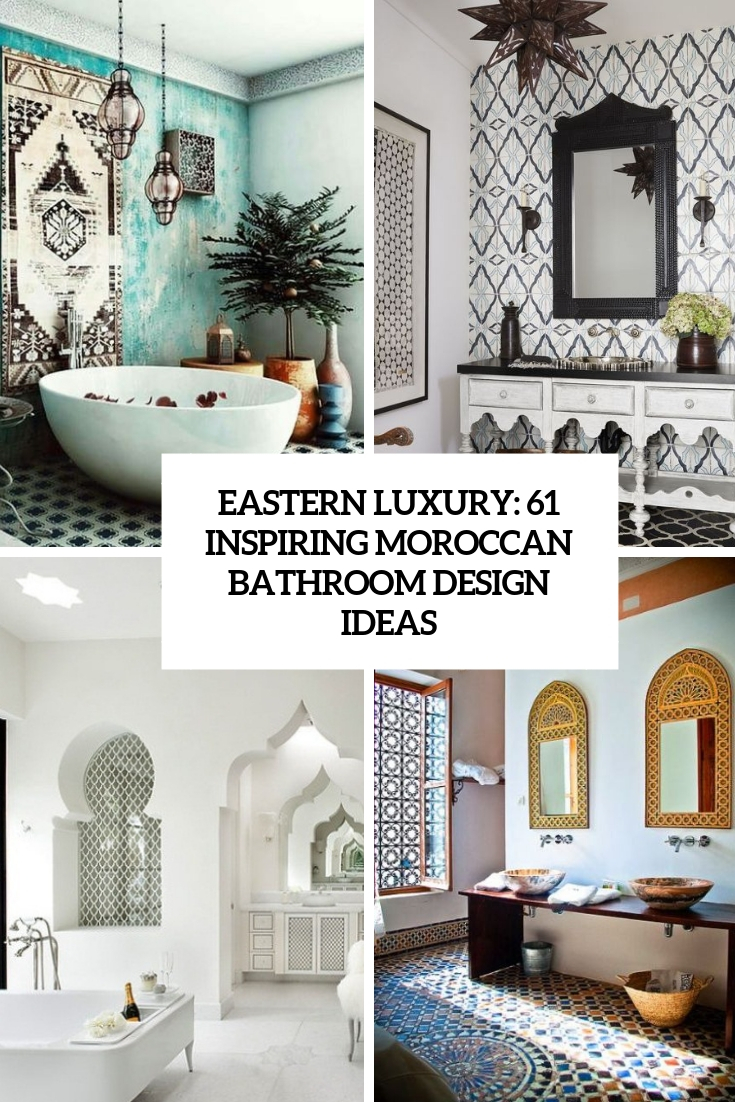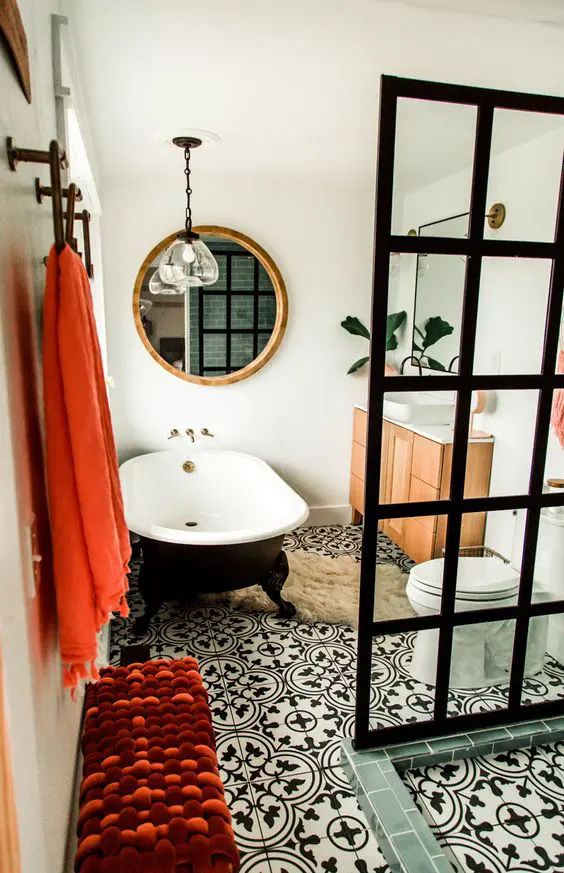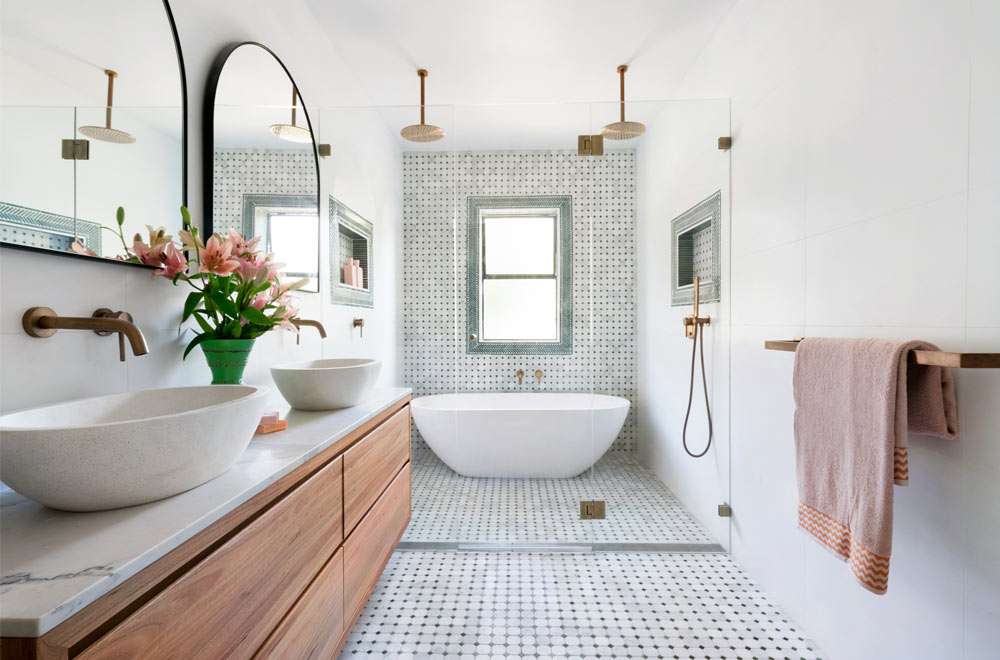Creating a bathroom that reflects your personal style can be an exhilarating journey. One of the most captivating styles that can completely transform your space is Moroccan décor. With its vibrant colors, intricate patterns, and rich textures, a Moroccan-inspired bathroom can evoke a sense of serenity and exotic charm. In this comprehensive guide, I will share my personal experiences, practical tips, and inspiring ideas for incorporating Moroccan decor into your bathroom.
Understanding Moroccan Decor
Before diving into the specifics of Moroccan decor for bathrooms, it’s essential to grasp what Moroccan design entails. Moroccan decor is characterized by warm colors, intricate tile work, bold patterns, and a mix of textures that create an inviting and warm atmosphere. The use of natural materials like wood, stucco, and stone is prominent, and lighting plays a pivotal role in setting the mood.
Characteristics of Moroccan Decor
- Color Palette: Rich jewel tones like deep blues, reds, and greens.
- Patterns and Textiles: Intricate geometric and floral patterns.
- Lighting: Use of lanterns, chandeliers, and soft ambient lighting.
- Natural Materials: Stone, wood, ceramics, and woven fabrics.
Why Choose Moroccan Decor for Your Bathroom?
Choosing Moroccan decor for your bathroom can elevate the aesthetic and create a unique ambiance. Here are a few reasons why this style stands out:
- Inviting Atmosphere: The vibrant colors and textures create a warm, welcoming feel.
- Customizable: Moroccan design can be tailored to fit any bathroom size and personal taste.
- Timeless Appeal: The intricate designs and elements provide a classic touch that never goes out of style.
Key Elements of a Moroccan Bathroom
When designing your Moroccan bathroom, focus on key elements that encapsulate the essence of this style.

Tile Work
Tile is a standout feature in Moroccan design. The most recognizable tiles are the zellige—handcrafted, colorful tiles that often feature intricate geometric patterns.
Types of Moroccan Tiles
| Tile Type | Description | Ideal Use |
|---|---|---|
| Zellige | Hand-painted tiles with intricate designs | Wall and floor tiles |
| Moroccan Cement Tiles | Patterned tiles made from cement | Use in flooring and accent walls |
| Terracotta Tiles | Natural clay tiles, unglazed | Warm flooring options |

Lighting
Lighting is crucial in a Moroccan bathroom. Lanterns and pendant lights made of wrought iron or metal filigree can create dramatic shadows and enhance the overall vibe.
Popular Lighting Styles
- Lanterns: Hanging lanterns in various shapes and sizes.
- Wall Sconces: Decorative sconces that add charm and ambience.
- Chandeliers: Ornate chandeliers that serve as focal points.

Design Tips for a Moroccan Bathroom
Now that you understand the essentials, let’s dive into some practical tips for designing a Moroccan-inspired bathroom.
Choose a Bold Color Palette
Don’t shy away from bold colors. Rich tones like deep turquoise, ruby red, and gold can significantly elevate your bathroom’s look.

Incorporate Textures
Layering different textures enhances the Moroccan aesthetic. Consider incorporating woven rugs, plush towels, and wooden accents.
Mix and Match Patterns
Contrary to conventional design rules, mixing patterns is encouraged in Moroccan decor. Use patterned towels, shower curtains, and rugs to create visual interest.

Include Natural Elements
Integrate natural materials like wood and stone. Wooden cabinets or a stone sink can complement the overall design beautifully.
Creating a Focal Point
Every Moroccan bathroom should have a focal point that draws the eye. Here are some ideas:

Freestanding Bathtub
A freestanding tub can serve as a luxurious centerpiece. Opt for one with an ornate design or rich color to match the Moroccan style.
Decorative Mirrors
Mirrors with intricately carved frames can enhance the Moroccan vibe while making the space feel larger and more inviting.
Accessorize for Authenticity
Accessories are crucial in achieving an authentic Moroccan bathroom look. Consider adding the following:
Moroccan Rugs
A beautiful Beni Ourain rug can add warmth and comfort, enhancing the overall aesthetics.
Decorative Pots and Plants
Incorporate plants in decorative pots to introduce natural elements and color.
Pros and Cons of Moroccan Bathroom Decor
Pros
- Unique and vibrant style
- Customizable and versatile
- Timeless aesthetic appeal
- Enhances relaxation and tranquility
Cons
- Can be expensive depending on materials
- Requires maintenance to keep vibrancy
- Patterns might be overwhelming for some
FAQs about Moroccan Decor Bathroom
What are the best colors for a Moroccan bathroom?
The best colors include rich jewel tones like deep red, turquoise, gold, and earthy tones like brown and beige. These colors create a warm and inviting atmosphere.
How can I incorporate Moroccan decor on a budget?
Focus on smaller accents like rugs, towels, and light fixtures. You can also DIY some elements, like painting your existing accessories in Moroccan colors and patterns.
Can I mix Moroccan decor with other styles?
Absolutely! Moroccan decor can blend well with modern, rustic, or bohemian styles by using it in moderation and selecting complementary colors and textures.
What lighting works best in a Moroccan bathroom?
Use a combination of ambient and task lighting. Lanterns, chandeliers, and wall sconces in wrought iron or colored glass are ideal for creating a warm atmosphere.
Conclusion
Designing a Moroccan decor bathroom can be a fulfilling project that adds personality and warmth to your home. By incorporating vibrant colors, intricate patterns, and natural materials, you can create a serene oasis that transports you to the enchanting landscapes of Morocco. Whether you choose to go all out with traditional elements or incorporate a few accent pieces, the result will undoubtedly be a beautiful and unique bathroom. Happy decorating!